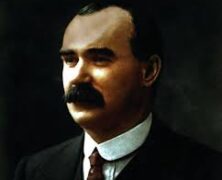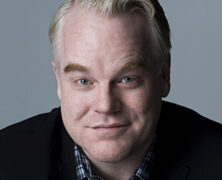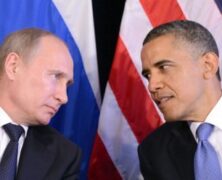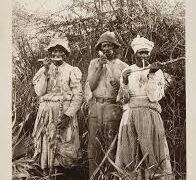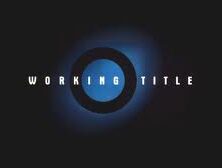The West Cork Literary Festival, centred on the town of Bantry, is one of those wonderful but rare weeks in which one can focus completely on books, on either their reading or their writing. Featuring readings and talks from established authors and poets, Q and A sessions with literary agents and editors, and even nightly open-mic events in which one can showcase one’s own talents, the West Cork Literary Festival has become an annual highlight in the Irish literary calendar. This year’s Festival was just as enjoyable, interesting and informative as I had hoped. The first talk I attended was aptly entitled “An Evening with S. J. Watson”, the author of the hit thriller novel Before I Go To Sleep. Watson read from his latest book, Second Life, before discussing writing techniques, the publishing process and the fascinating impact of the internet on humanity in what was quite an intriguing hour and a half. The next talk I attended was rather different, and proves that everybody will always be able to find something that appeals to them at the West Cork Literary Festival. Nuala O’Connor, previously known as Nuala Ní Chonchúir, read in the Bantry Library from her new historical fiction novel Miss Emily, which deals with the relationship between the real-life poet Emily Dickinson and her fictional Irish maid. Most of the talk related to history, which was of particular interest to me as it is my favourite subject, but towards the end the discussion became more general, and Nuala O’Connor, like S. J. Watson, gave insights into the world of writing and publishing. That evening saw David Nicholls, whose latest work, Us, was longlisted for the Man Booker Prize, give an entertaining and inspirational talk to almost 270 people in the Windward...
Socialism: What is it and why do we need it? by Graham Harrington...
posted by Cloud
Socialism is a system whereby the means of production, distribution and exchange are publicly owned and used for the benefit of society as a whole. In English, this means that the natural resources of a country (oil, land, gas, water), the infrastructure (power stations, roads) as well as the commanding heights of the economy (the large industries, factories and essentially anything that produces anything on a large scale) are owned by the state. However, this is not the same as what we currently recognise in Ireland as state ownership. Under Socialism, the working class, i.e. the vast majority of society who do the vast majority of the work, take ownership of the state and make the decisions through a direct, participatory democracy, such as in Cuba. This ensures that the production and distribution of goods and services is done to meet the needs of people rather than for the profits of a small elite in society. I’ll explain this in more detail later on. Socialism would be ideal for Ireland. We possess a hugely skilled and educated workforce, have decent natural resources and we have excellent access to raw materials for production. For instance, we have a lot of rain here in Ireland, which is quite obviously a huge nuisance. However, under a democratically planned economy, we could develop ideas on the harnessing of rainwater which could be used to provide water services for everybody in Ireland without having to worry about water conservation. Under the current Capitalist system, this wouldn’t be done until it would become profitable and as we know, privatising water services is far more profitable than making clean, renewable water available for everyone. Our natural resources are privatised and given to foreign multi-national companies such as Shell to make a...
Iconography: What’s that?...
posted by Cloud
On a trip to Mayo we spotted Croagh Patrick and thought, “Let’s have it.” Turns out it’s quite pretty and very manageable really. At the top it was very cold. I met a few stalwarts who filled me in on some of the history; one man remembers when they’d ascend in darkness with candles, throngs of people on a pilgrimage. Of course they banned that. Others still go up barefoot. Even with Zamberlans on with Vibram soles I found it fairly challenging; barefoot was never going to be an option for me, not that my soul is as pure all that, you understand. There were a couple of young fellas hanging around there, about thirteen or so. I asked one of them, the one with straw-coloured hair (which is uncommon nowadays) to take a photo. We were perched behind the sign announcing the summit, four of us. The sun was out, the view was wonderful and on the other side of the little chapel the wind was a bit Tom Crean. The photo caught us with smitten faces, pinkish and weathered, as if we’d been on foot for months in this terrain. I zoomed in later and took a screen grab of my face and altered it with an app and suddenly (to myself at least) I appeared more, well…heroic. My facial features were virtually annihilated yet it was instantly recognisable as a face. I think what the modification added was a kind of logo, the power of which I know advertisement agencies understand and exploit to the max. I could have been anyone to the untrained eye and yet I was me all the while. My expression was rendered more inscrutable and the scarf I’d worn as a hat obscured the precise dimensions...
Achievements of the USSR by Graham Ó hArrachtáin...
posted by Cloud
The Soviet Union achieved more in its first few decades than any other nation could ever even dream of replicating. The USSR originated in the baptism of fire that was the October Socialist Revolution. In this revolution, the exploited working class took state power and began administering the Dictatorship of the Proletariat under the leadership and guidance of the Bolshevik Party. The revolutionaries faced vociferous opposition from the dispossessed landowners and big bourgoisie and their supporters. Not to be out done by their Russian allies,16 countries such as the USA, Canada, Japan and Britain sent an expeditionary force to help the White Russians. The Bolsheviks successfully marshalled the support of the masses and the Red Army crushed the counter-revolutionaries. The young USSR achieved much in women’s emancipation. Women were given a right to vote, a right to education and the pay gap between men and women was abolished. Day care centres and créches were set up and provided to women to allow them to work without worrying about their children’s welfare. Women were also allowed play an equal part in the Red Army and in the protection of their country. The 5-year plans created a new era of industrial progress with industry growing by over 800% from Tsarist times during the first two 5-year plans. All this occurred at the same time the Capitalist countries were enduring the Great Depression! Magnificent feats of Socialist construction such as the Stalingrad grain factory and the industrial city of steel, Magnitogorsk showed the benefits of a planned economy. The Bolsheviks believed in cheap and effective transport for all citizens, with the construction of the Moscow Metro in 1931. Socialist architecture dominated the cities with beautiful buildings such as the Red Army Theatre, made in the shape of...
Why Jenna Coleman should leave Doctor Who by Cian Morey...
posted by Cloud
Doctor Who’s eighth series has come and gone and it was one of the better ones. In fact, it was quite excellent, compared to Steven Moffat’s series 6 in particular. There were a lot of good episodes, a lot of good monsters, and, most importantly, a lot of good acting, specifically from Jenna Coleman. Those who are familiar with Doctor Who will know that Jenna Coleman’s character Clara Oswin Oswald was introduced to us as a plot device. She wasn’t really a companion; she was mostly a mystery to be solved. And she stayed that way for all of her first series without getting a lot of character development or a lot of opportunity to show off her talents. She was rather forgettable and I wanted her gone. Then series eight happened, and I realised that Jenna Coleman could actually act. Which was nice. The series opener, “Deep Breath,” gave us a pleasant hint of what was to come as did “Into the Dalek” and “Robots of Sherwood.” In “Listen” she improved. In “The Caretaker” she improved again. In “Kill the Moon” she became one of my favourite companions. Now I want to make it perfectly clear that I strongly disliked most of that episode due to its large assortment of scientific errors and gaping plot holes. However the last five minutes – when Clara stormed out of the TARDIS – were spectacular. Jenna Coleman delivered some of the best acting on Doctor Who since its reboot in 2005. Peter Capaldi, the new Doctor, a favourite actor of mine, had been outshone. Jenna Coleman stole the show, in that episode and in many of the following episodes, and that was fine. I’m happy that she has had such a wonderful opportunity to showcase her...
My Love for Jurassic Park by Graham Harrington...
posted by Cloud
It was with great delight and excitement that I watched the new Jurassic World trailer. I’ve loved Jurassic Park since before I was old enough to pronounce the names of my favourite dinos. I remember going to see Jurassic Park III with my family when I was about 6 or 7. My dad, thinking I would be frightened, told me we were going to see Doctor Dolittle. Despite his worrying, I ended up being entranced by the film. This started off a life-long enjoyment of the film series. I must have seen the three movies about ten times each – no exaggeration – whether it was the scene in the first movie when the T-Rex attacks the Velociraptors in a Des Ex Machina moment or the scene in the sequel when the T-Rex rampages through San Diego or the part in the third film when the T- Rex (You can guess what my favourite dinosaur is) duels with the Spinosaurus. Unsurprisingly, I wanted to be a paleontologist when I was younger. The idea of digging up dino bones and researching species was my life dream rather than to be a fireman or anything like that. I had an ecclectic collection of books, manuals and magazines on anything related to dinosaurs. Sadly, my interest declined over the years. Thankfully, my interest in the Jurassic Park series never waned. Jurasssic Park is definitely a big part of my childhood and instrumental in forming me as a person. This might be a bit odd to say about a film without a deep message or comprehensive story; although, to be fair, the first film did give a lesson on the potential consequences of man trying to play God. After watching the trailer for the new installment (five times...
Homage to Catalonia Again by Daniel Dilworth...
posted by Cloud
Hundreds of thousands have rallied for it; numerous political parties in the region support it;they speak a completely seperate language there. Artur Mas has signed legislation allowing a much-sought independence referendum for it. And yet…Mariano Rajoy and Madrid continue to deny it. I am talking about is the Catalan Independence referedum, scheduled for 9th November. In recent years a wave of nationalist sentiment in the region – already carrying limited autonomy – has mushroomed, inadvertently assisted by the policies of successive governments in the far away capital of Madrid. Catalans feel they have been shouldering the brunt of the economic crisis in Spain and that their industries have been subsidising the less-well off regions such as Andalucia. Momentum has grown and at a much faster pace than say Scotland. But what have these two regions got in common? Both have strong independence movements; both are financially feasible should they become independent – which Scotland has voted against – a result that would disappoint both William Wallace and Robert “Braveheart” Bruce (no, that is not an error – just showing one of the major inaccuracies of Mel Gibson’s infamously inaccurate films, but that’s for another day); and both of these regions’ independence was/is opposed by the European Union. Madrid’s argument that any such independence referendum would be unconstitutional really annoys the Catalan people. Spanish army generals have suggested military intervention should independence be declared. All of this poses a problem though. Democracy is considered a birthright in Western nations. This must extend to a referendum on autonomy. The hypocrisy is evident: Spain is simultaneously threatening to undermine one perfectly legitimate referendum while questioning the desire the people of the Crimea to vote to join Russia. This referendum could’ve failed. Spain could’ve kept the independence movement...
Via Veneto, Rome for breakfast...
posted by Cloud
La Baita on Via Veneto, just off the Piazza Barberini. We await a vegetarian breakfast. I’m hankering for a cappuccino. There’s a lot to do this day. The highlight will be the Galleria Borghese named for Cardinal Sciperone Borghese, patron of a greater sculptor than Michelangelo called Bernini. It’s very hot this morning. We’re beneath an awning but I’ve half a leg in the sun and that shin bone is heating up like an element and there’s nowhere else i can put it, nowhere comfortable anyway. Our waiter stands in the glare, hands behind his back, looking into the piazza; he’s wearing a waistcoat and a buttoned-down collar. Via Veneto is a posh street and has a concentration of high-end hotels full of business types, well-to-do tourists, whole American families on holiday, people who’ll do as much shopping as they will sight-seeing. They come down the hill past us and turn right toward the morning attractions. This is Friday and Rome is different on a Friday; it’s crowded with weekenders and city-breakers. Termini was packed tight this morning with suitcases and rucksacks. I saw a woman with no nose; she was rallying a brigade of beggars who looked a bit too healthy and fit for my euro. I was looking at a portrait of Lord Byron at the same time; he bore a strong resemblance to Usain Bolt which surprised me. The most useful word we’ve learned so far is “preggo” which can mean several things depending on the context. I love these muscular words. “Preggo” can mean, “Can I help you?” if you’ve just walked in to a store and met the eyes of the assistance; it can mean “Please sit down and I’ll be with you in a moment,” if you are...
Open Night ’14
posted by Cloud
Imagine yourself at age eight. What would you tell yourself? Just be yourself to everyone you meet. Don’t care about what others think. DANIEL O’REGAN The last thing you’d want to do The last thing I’d want to do is hurt people’s feelings. JAMES CARROLL A bad smell and where it came from My sister. What you ate for breakfast I ate Aldi Choco Stars. Write about a song I like singing. My great-great-grand-uncle wrote “On the One Road”. Describe nearly drowning You almost die. You have a chance of death. The End. Introduce your long-time imaginary friend His name is Michael Cooney. He really likes cake with marshmallows but he is easily upset. Two dollars isn’t a lot of money, unless… You live in Somalia. Your favourite jeans Jeans. You can keep only one memory from your entire life. What will it be? That I have a family. Describe a person you’ve never met Roy Keane 1. Hard 2. Scary 3. Tough 4. A leader 5. Brilliant footballer 6. Cork man KILLIAN LEE Set your alarm for 3 a.m., wake up, and write the first thing that comes to mind Go back to sleep and dream of great things. CHARLIE MORAN Your best birthday Disneyland Paris. Your favourite hiding place In the boot of the car Describe your grandmother’s childhood Hell. Arsenic Eoghan A present from your mother Life. Ten bad bar pickup lines I am ten. How to get rich quick I’d go to the bank. A piece of clothing you keep just for the memory Baby clothing. Something you never told your mother She’s nice Where will you be exactly...
Philip Seymour Hoffman...
posted by Cloud
Philip Seymour Hoffman was one of the best actors of his generation. His performance alongside Jude Law and Matt Damon in The Talented Mr Ripley exhibited his ability to be obnoxious, while his role as Art Howe in Moneyball exuded righteous indignation (if not incompetence) and a good measure of integrity. He was as versatile as they come; in Along Came Polly he played a deluded and struggling actor who used to be famous, and who hilariously wants to play both Jesus and Judas simultaneously purely to try to resurrect his non-existent career. He had an unmistakable comic talent. In The Master he was enigmatic, mercurial, authoritative, sinister; in The Big Lebowski he is simpering; in Happiness he is pathetic but lost and frustrated. He had no limitations other than that paunch and those less-than-leading-man looks. He always struck me as a brave actor, willing to commit to a role with honesty and professionalism; mostly he was just so utterly compelling. I used to think that if I were a director with a sufficient budget the first thing I would do is ring Hoffman before Pitt or Clooney or Streep. Having his name on the credit roll meant the movie had legitimacy and qualified the project as proper art, and would guarantee the audience thoughtfulness, humour but mostly believability. I wager he’ll be best remembered for his role in Capote partly because the real Capote was so singular and therefore such a challenge to depict, but also because of the on-screen Capote’s dilemma which says so much about art and the artist’s prerogative. Hoffman is a loss but it’s a privilege to have seen his films while he was alive....
All The West Can Offer...
posted by Cloud
The sad but boringly familiar situation in Israel/Palestine has its roots in a very simple assertion that Zionists and others have made for centuries now, since the 1800s and before – and that is that Palestine is unpeopled in the first instance and Eretz Israel in the second. Early Zionist pioneers/terrorists argued that Israel is much larger than the Israel of today and includes Gaza, the West Bank and Jordan. Successive Israeli administrations feel aggrieved because they haven’t been thanked for eschewing their rightful claim to all of Biblical Palestine/Eretz Israel in the interests of peace; on the contrary, there have been continual attempts by their Arab neighbours to invade and destroy Israel and demands for an end to settlements in the West Bank. Her Arab neighbours comprise nations/factions that openly despise Israel and those who do so secretly, as well those more pragmatic actors who accept the status quo because it is too much trouble not to. Furthermore, the likes of Egypt have learned what happens when you try to take on Israel militarily, something Hamas should have learned by now – and probably have – but prefer martyrdom, especially when they can use dead bodies to advert to Israeli evil. The Palestinian cause is truly pathetic for several reasons: can anyone name a feature film about the suffering of the Palestinians? Most people have no idea about their grievances; they are totally and conclusively outmatched by Israel; other Arab nations are at best dubious about supporting them and are instead simply sitting back and waiting to see it they can gain anything when a rapprochement is reached; Arab nations still suffer from having been Third World nations too close to Russia during the Cold War; Israel has a Western feel to it: its people...
Russia: Out In The Cold by Daniel Dilworth...
posted by Cloud
The downed Malaysian Airlines plane has created quite a stir in western circles, with its fallout eclipsing that of even the Israel-Hamas conflict. Within minutes, the “pro-Russian separatists,” as they have been so lovingly referred to as by American and European figures and media, were the immediate suspect. No investigation necessary, guilty party found. And perhaps the rebels did shoot down the plane. There is a good chance of that. However, their target was most definitely not a commercial flight operated by the troubled Malaysian Airlines. Rather, as has become the frequent target in this conflict, Ukrainian fighter planes. But because of the rebels’ sympathies, Obama has been strongly critical of Putin, and others have followed suit, providing us with their opinions on why Russia is now a pariah state. The simple reason? They see Russia, and Putin in particular, as territorially ambitious, and that is not good for the people brought up to fear everything coming from Moscow. Does it matter if a substantial population of the Donetsk region are supportive of the rebellion? Of course not! Freedom to identify with a nation is universal, unless that wish is to join with Russia (or, on a separate note, is the wish for an independent Scotland, a possibility for which Obama has publicly declared his abhorrence.) Then there are also the numerous condemnations on “freedom of speech.” So, in a nutshell, it is the West’s wish to keep Russia down, to humble them, to condemn any action which the US sees as ‘interference.’ Of course we can all see the hypocrisy in this. The United States of America is a country that invaded nations such as Panama, Grenada, Afghanistan, Iraq, et al, whilst also funding the overthrow of many dictatorships and replacing them with many...
THE BANKING INQUIRY FARCE by Daniel Dilworth...
posted by Cloud
So, typical Ireland – we made a controversy out of a banking inquiry, where everyone is supposed to be united against the evil bankers! Well, that was until this week, of course, when a Labour politician failed to make it to a meeting which would nominate the Oireachtas members to sit on this inquiry. She failed to make it, and in the end Fianna Fáil got two members on said inquiry. Fine Gael and Labour went ballistic, with Enda Kenny calling it disgraceful, and Ivana Bacik, the Labour leader in the Seanad, saying the whole thing was an “ambush” on the government, as if this was possibly comparable to the Soldiers of Destiny’s famous last ambush against the government. Kenny, in his usual style, demanded Marc MacSharry of Fianna Fáil quit the inquiry or even be removed from it. Happy days for the government, he may have thought, further threatening that the terms of reference for the inquiry wouldn’t be made available until MacSharry departed. There was one hitch. With MacSharry’s refusal to quit, Kenny was banking on his removal. Little legal issues got in the way, such as Kenny being told MacSharry couldn’t be removed until the terms of reference were set. So, in the end, Kenny did what any honourable and noble politician would do; he announced his intention to appoint two Oireachtas members in the government to the inquiry, thus bypassing the previous vote that had been held in the original meeting to decide the nominations for the inquiry. Tempers rose in the subsequent Seanad sitting, with opposition keen to point out that this act was reminiscent of Soviet Russia and one particularly interesting comment being that Hitler himself would’ve been “ashamed” of Kenny’s tactics. Kenny’s nominees needed the approval of...
Sylvia Plath’s work is evidence of a disturbed mind...
posted by Cloud
The Arrival of the Bee Box is an extended metaphor that offers many interesting, provocative interpretations. The box can be seen as the poet’s work, her attempt to put order to chaos; the bees are her thoughts or, more specifically, her tormented mind. The box’s purpose is to contain its contents; without the latter the former is redundant – hence the tragic paradox of Plath’s life. What’s more disturbing is that the speaker has only herself to blame: “I ordered this, this clean wood box”. Why, one should ask, would anyone will this? There’s clearly a compulsion at work: “I have to live with it overnignt/ And I can’t keep away from it.” The difficulty a reader may have is to understand why Plath invites this torment or perhaps we could ask why she is unable to resist it. What’s certainly evident in the poem is the terrifying notion that our mind is our enemy, that we carry around with us, inside in us, the very thing that threatens to destroy us. Her attempts to understand the contents of the box – her mind – are necessarily influenced by the box itself. It is bizarre and disturbing: “Square as a chair and almost too heavy to lift.” The task of understanding is itself unsettling; after all, “The box is locked, it is dangerous.” Again we see the paradox: trying to understand can mean further harm being caused. Maybe it’s better to leave the bees alone, even though letting them out might allow for some relief? The curiousity is part of the problem; the poet is impressed and intrigued by that which disturbs her; the imagery she conjures is infectious: “It is like a Roman mob/ Small taken one by one, but my god,...
We are the new sugar slaves...
posted by Cloud
Excessive sugar Excessive sugar can cause obesity, diabetes, high blood pressure, heart disease. Kids will tend to eat what they’re given especially in school which tends to be lots of sugar. Sedentary lifestyles are a problem too. We watch too much TV (because we’ve eaten too much sugar) and don’t get enough exercise (because excessive sugar has sapped our energy!) Brutal history of sugar and the Cult of Sugar Sugar cane was first farmed about 10,000 years ago in New Guinea. It was thought to be a kind of elixir, a cure for every ill. Some New Guinea myths depicted the sugar cane as the mother of the human race. Sugar refinement became a highly skilled art practiced by masters and taught to apprentices. When Arab armies invaded Persia they adopted the art and it spread: “Sugar followed the Koran.” Sugar was worshipped. The work involved was brutal and captured enemy slaves were put to work in the fields and mills. It is possible that we Europeans first discovered sugar during the Crusades. In the beginning only rich Europeans ate it; it was considered a delicacy much like caviar today. The explorations and discoveries we learn about in school today were motivated by producing sugar cane and finding colonies to grow it with a readily available slave population. Henry the Navigator and Columbus brought cane to newly discovered lands. The age of Big Sugar had dawned. Slave revolts in Hispaniola were linked to the sugar trade; Portugal used Brazilian slave labour to produce sugar – and profits. Greater availability decreased prices and the poor started to consume sugar as well as the rich. Ever since, sugar-rich products have been cheap and so attractive. Agricultural exploitation led to environmental degradation in places like Barbados; some...
Transition Year Work Experience...
posted by Cloud
For one week of work experience I went to Tyndall. Tyndall is one of Europe’s leading research centers in information and communications technology. I was given a glimpse of the adult way of life and more importantly how they put food on the table. I was in awe at what I saw over this week. I walked in the door of Tyndall and immediately I knew I was going to enjoy the week. I was greeted by 19 other students who were doing the CEIA High Tech Elec program. What really amazed me was the building. The foyer wall was glass and you could see into the largest fabrication on site. Here were some of the brightest minds living in Cork are, and I was able to see them dressed in their protective gear, going about their daily lives. On the first day we were showed around the building and were informed of what work happens in Tyndall. We sat through a number of talks that were about micro needles and batteries. Micro needles fascinated me. They can be used as just a patch like a plaster. Underneath the patch there are a lot of micro needles that go into your skin, but they don’t go deep enough for you to feel them. Yet they are deep enough to allow medicine flow into the blood stream. With the huge advances being made in electronics the battery life in our devices has become shorter. Lithium ion batteries are no longer powerful enough. Lithium air batteries seem to be the way forward. The micro needle was invented in Tyndall. Our next day had much the same format. A talk on electronics and 3D printing interested me the most that day. Tyndall have made a...
Working Titles
posted by Cloud
As you probably know, movies are often made under “working titles”. This means that during production and before a final name has been decided upon, the makers will use a tentative title for the work which may or may not emerge as the final name. Here are a few working titles of well-known movies: “Gladiator” by Ridley Scott (2000) was originally known as “That’s What Do Happen.” “Driving Miss Daisy” by Bruce Beresford (1989) was first called “Slinking Like a Mudda.” “Toy Story” by John Lasseter (1995) was made as “Play, Play, Play All Day.” “The Shawshank Redemption” by Frank Darabont (1994) was called “Jail!” “They Shoot Horses, Don’t They?” by Sydney Pollack (1969) was “Beat Them Til They Drop.” From these examples you can see why working titles are usually just that. ...
Work Experience by Colin McCarthy...
posted by Cloud
It was a week that I was not sure I would enjoy. I wouldn’t say I was dreading going back to my old school; in fact, it was the opposite! I enjoyed my years in the school. However I was a bit worried that I would have nothing to do, nobody to talk to and the week would end up being very long. I could not have been more wrong! I was based in Junior Infants for the week which made me nervous as it was the only class in the whole school in which I knew nobody. My two friends Brian and Ken had been on work experience the week before and they had each other to talk to and they would help each other to settle in. The teacher Ms. Cullen, an old teacher of mine, welcomed me back along with my old principal and suddenly I felt as if I had never left! I don’t remember much of my time in Junior Infants but I’m certain that we weren’t as lucky as the infants here now. There were shelves upon shelves of toys from construction to farming and barbies to pirate costumes! The infants also have great variety in their learning. They begin the morning by getting into groups of five; then five or six learning support teachers come in and take a group with which they do activities to improve and understand the English language! For example, the infants would have to match the first letter of an object to the correct object. They then all regroup as one class and practise their handwriting and maths. When they return to the classroom after lunch it’s playtime! I had to have different areas set up, like the construction area, which included...


